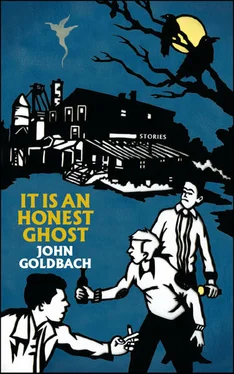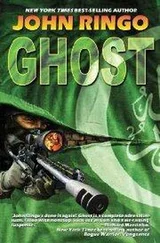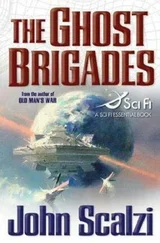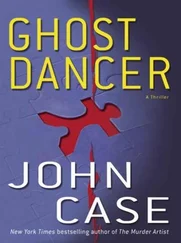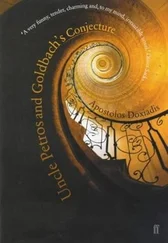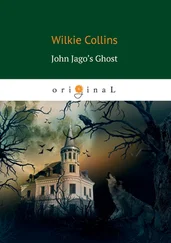I stepped out of the boat and into the ocean. There wasn’t a dock, so the boat couldn’t take us right up to the beach, so we got out about a hundred metres from land and started walking shoreward in the ocean.
From the beach, we walked for about fifteen minutes into the brush until we reached a clearing, with a fire blazing, a band playing, dancing, and kids kicking around a football.
‘We made it,’ said Mark. ‘How’s this for a Christmas dinner!’
There were coolers of beer and bottled water. We each grabbed a beer.
Boris spotted me and I approached him and said, ‘Sorry about that, man. I don’t know what came over me. Like, hard-core fatigue.’
‘How’re you feeling now?’ he said.
‘Good, man, good.’
‘Well, good,’ he said.
‘Anyway, Merry Christmas!’ I said.
‘Ha yes. Two Jews celebrating, one a Soviet Jew, the other Canadian, celebrating Christmas in an East African village on the Indian Ocean. Somewhat random,’ he said.
‘Yes,’ I said. ‘It is.’
The sky darkened and sparks flew skyward.
I felt a football hit the back of my legs, so I turned around and pinned the ball under my foot. Stanley stood with a young boy, both waiting for me to kick the ball back into play, so I passed it to Stanley, who overtook the boy and scored on his net, which was delineated by two rocks with a space of approximately two metres between them.
Stanley, the boy and I kicked the ball around for a half-hour or so. The kid was a good footballer but very cheeky, in general, at one point posing for a photo with Stanley and me, making rabbit ears behind my head, his arm stretched high. I had my revenge, though, when I scored on his net several times in a row. He wasn’t much of a goalkeeper. He winded me, however, and I had to quit. I’d worked up too much of a sweat and regretted it.
Four men, two for each fish, carried massive red snappers to the fire and set them up on spits. A table was set up with rice and ugali and collard greens. People lined up with paper plates. The fishes turned in the fire.
I ate only a little of the fish, a few forkfuls, though it was delicious, thinking about how Saul Bellow almost died as the result of toxoplasmosis, from eating red snapper. The parasitic disease was rare and I didn’t think I’d get it from the fish but I didn’t want to eat much, even though it tasted good.
Drinking more beer, I looked at my Nokia and I’d received a message from MC Karen: Merry Xmas! xx
So I wrote: Merry Xmas to you too! Lamu’s beautiful .
And then I called my girlfriend, Stacey, back in Montreal.
She picked up and I wished her Merry Christmas. It was loud where she was, at her aunt’s house — she seemed harried and distant — and so we didn’t talk long, only for a few minutes. I walked off, away from the fire, away from the crowd, and excitedly told her where I was, that is to say, I told her I didn’t even really know where I was, and I looked up at the night sky and tried to describe it to her. I felt myself becoming emotional, missing her terribly, trying to tell her that, but then she said she had to go; more family had arrived.
I said I understood and I said I love you and she said I love you and that was that. I went back to the fire, stopping at a large cooler, pulling out a fresh wet Tusker.
Boris and Stanley and I stood and watched people dance around the fire as we drank our beers.
‘Look at these wazungu ,’ said Stanley, shaking his head, as we watched middle-aged writers dance around the fire as the band sang with drums.
‘I’m not circling the fire dancing,’ I said.
‘You’re not a mzungu ,’ he said.
‘Thank you!’ I said.
Kenneth walked toward us from the fire and said, ‘Guys, I want you to meet a good friend of mine.’ A tall slightly hunched man, in a T-shirt and a kikoy , turned around from facing the fire and looked our way, and Kenneth said, ‘This is my good friend Osama.’ The man walked toward us and at first appeared as a tall broad silhouette. ‘This is Osama Goldberg,’ said Kenneth.
‘ As-salamu-alaykum ,’ he said. ‘Hi.’
‘ Wa-alaykum-salaam ,’ we said.
We sat on log benches, low to the ground, around the fire pit, listening to Osama Goldberg’s story, namely, how a middle-class Jewish guy from the U.S. wound up living in Lamu as a Muslim. Osama was born Nathan Jonathan Goldberg in 1956, in New York City where he lived in Brooklyn till he was twelve, then moving with his mom and her new husband to Hollywood, Florida, in 1968, where his stepfather was a developer in Broward County and adjacent Miami-Dade County, too. He briefly attended the University of Miami, starting a BA, but dropped out after two years, staying, however, a Hurricanes fan, he said, referencing his T-shirt. He told us he’d tried everything and travelled everywhere — doing peyote in New Mexico with mystics, hanging out in California ashrams, travelling to Japan in the late eighties, walking vast stretches of the Great Wall of China, visiting Jerusalem and the Wailing Wall — but it wasn’t till he’d arrived in Lamu, backpacking, in 1991, that he felt like he’d found his home on Earth. The ways of the island, he said, so laid-back but spiritual, were attractive to him. ‘It’s a simple lifestyle on Lamu,’ he said. ‘ Pole pole ’s the mantra, for everyone, which means slowly , like take it easy, in Kiswahili.’ Osama learned Kiswahili and Arabic and became deeply engaged in Quranic studies, attending a madrassa at the Riyadha Mosque, ‘an engagement that only continues to deepen,’ he said. ‘I know the Quran by heart. I’m hafiz . But millions know it by heart.’
Osama, too, had become an expert in Lamu’s history and was the island’s most visible celebrity, known to all the islanders as the Mayor of Lamu.
‘Lamu,’ he said, ‘has been coastal East Africa’s major port of shipment and trade since the 1300s. It’s the oldest Swahili settlement in Kenya.’ He leaned in, closer to the firelight. ‘The Arab world, however, always moved through Lamu, hence the over twenty mosques on the small island today,’ he said. ‘Later, the Portuguese invaded in the sixteenth century, then the Turkish helped take Lamu back in the seventeenth century,’ he said, sipping on bottled water. ‘The island’s seen everything, and everybody, from the Turks to the Germans to the Chinese, over the centuries. But it’s been a capital of poetry, education, art and religion the whole time. Lamu’s always been simultaneously traditional and cutting-edge, a bit avant-garde.’ Osama looked up at us and, somewhat dismayed, said, ‘Nonetheless, the slave trade flourished in Lamu for centuries. Everything’s been traded through Lamu, including people. The ivory trade, too, flourished here.’ No one spoke while the Mayor of Lamu had the floor. ‘The world has passed through Lamu but nothing can alter the island.’ He smiled. ‘It’s the greatest, most accepting place on earth.’
We were interrupted by Anita Khalsa’s announcement that the boats were heading back to the main island in a half-hour, so we should start to make our way to the beach.
‘Also,’ Anita said loudly, ‘to alleviate some of your worries regarding terrorism. Some of you have approached me concerned because you heard the Taliban are in and around Lamu, along the coast and so on. Well, not to worry; it’s not the Taliban you read about in the papers and hear about on TV. They’re simply local youths who thought Taliban made a cool gang name.’
People were gathering their gear, starting to clean up the area, and I asked Boris, ‘Do you think there are terrorists in the region? Supposedly Lamu’s a hideout, which makes sense. Hard place to find someone.’
Читать дальше
